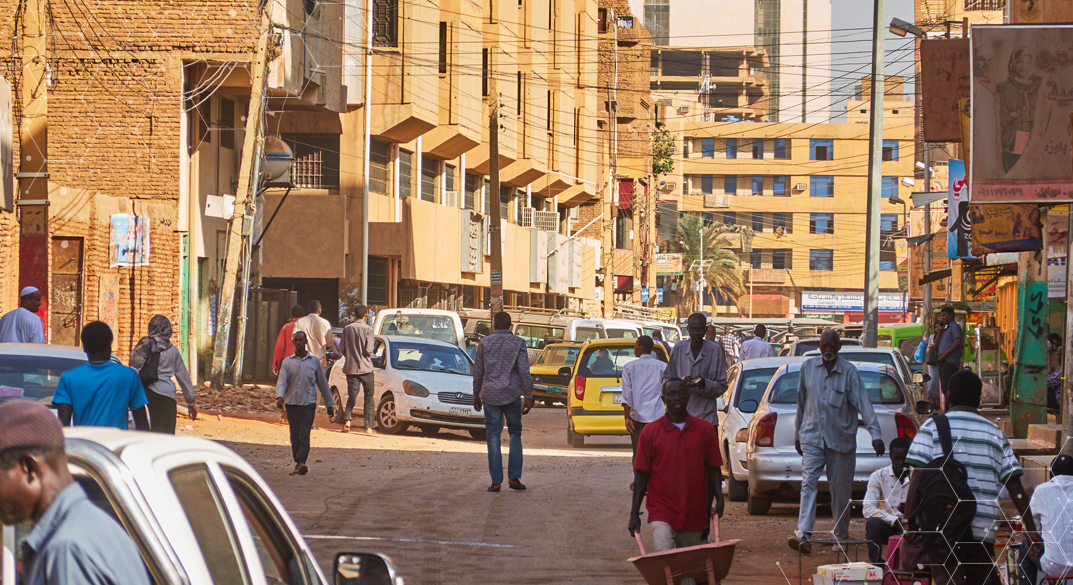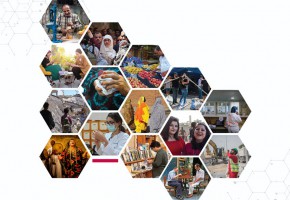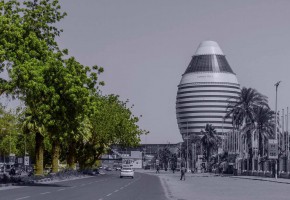
Right to health in Sudan: Current situation and determinants
This research is a part of the Arab Watch Report 2023 on the right to Health.
Right to health in Sudan: Current situation and determinants - Maisa El Fadul, PhD, Samia Habbani, PhD, & Mona Fatah Al-Rahman, PhD
Please click here to download the full report.
Introduction
The Republic of Sudan is an Arab African country with a predominantly Muslim population. It is located in northeast Africa and bordered by seven countries: Egypt, Libya, Chad, Central Africa, South Sudan, Ethiopia, and Eritrea. It covers an area of 1.866 million km2. Before South Sudan's secession in 2013, the Republic of Sudan was the largest country in the Arab World and Africa. Today, it is the third largest.
In 2022, Sudan's population was estimated at 46.87 million, growing at a rate of 2.6% (World Bank 2023). According to the 2014 Sudan multiple indicator cluster survey (MICS), nearly 70% of the population of Sudan lives in the countryside. Almost half of the population is comprised of children, and the number of men is equal to that of women. Around 68% of the population has access to safe drinking water. Although 41% enjoy improved sanitary facilities, the rate fluctuates between 28.2% in rural areas and 69.3% in urban areas. The fertility rate for the three years preceding the MICS was 6.2 per woman. It was higher in rural areas, reaching 225/1000, compared to 167/1000 in urban areas (Republic of Sudan, Council of Ministers & UNICEF 2014).
The survey indicates that six out of 10 young women in Sudan can read and write. However, literacy rates varied by geography, reaching 79.8% in urban and 50% in rural areas. The percentage of women who know how to read and write also varied according to the household's economic status. For example, in the 15-24 age group for women from the wealthiest families, literacy was around 92.2%, compared to 31.1% of women in the poorest households (Republic of Sudan, Council of Ministers & UNICEF 2014).
Furthermore, Sudan hosts many refugees from neighboring countries: Ethiopia, Eritrea, Chad, the Central African Republic, and South Sudan. In recent years, it has also received numerous Syrian refugees and several thousand Yemenis. At the beginning of 2022, Sudan hosted nearly two million refugees. Sudan is a multi-ethnic and multicultural country. It is a federal state with three levels of government, distributed over 18 states and more than 189 districts. According to the Juba Peace Agreement of 2020, a regional level was established below the federal level. The country was divided into eight regions following the Governance and Administration Conference in 2021 (2021-2024جمهورية السودان، وزارة الصحة الإتحادية ).
As a Least Developing Country (LDC), Sudan faces multiple socioeconomic development challenges. According to the Sudan National Health Sector Recovery and Reform Policy 2021-2024, the country's GDP fell to less than US$40.85 billion, and the annual economic growth was merely 2.3%. Thus, about 36.1% of the population lives below the poverty line (2021-2024جمهورية السودان، وزارة الصحة الإتحادية ).
Millions of children and households suffer from financial hardship and its health, social, and economic effects, exacerbated by the spread of COVID-19.
Moreover, the country suffers constant risks related to floods, droughts, conflicts, and displacement (Republic of Sudan, Council of Ministers & UNICEF 2014). It is vulnerable to natural and human-made disasters, and an estimated 8.7 million people require emergency assistance due to reduced living standards. In 2020, the worst floods in decades affected nearly 900,000 people, damaging homes, causing deaths, and leading to the loss of livelihoods and agricultural production (2021-2024جمهورية السودان، وزارة الصحة الإتحادية ).
High poverty, unemployment, conflict, and insecurity lead many Sudanese citizens to emigrate.
Due to the country's multiple socioeconomic challenges and the long-term state of war, many health indicators are deteriorating. Health services do not cover several geographical areas. Furthermore, health services that exist are inadequate, as human and material resources are not fairly distributed between the various regions (2022-2021 جمهورية السودان، وزارة الصحة الإتحادية).
Maisa El Fadul, PhD, Samia Habbani, PhD, & Mona Fatah Al-Rahman, PhD
Please click here to download the full report.
This research is a part of the Arab Watch Report 2023 on the right to Health.
Recent publications

ANND Newsletter January 2026 - From Davos to the UPR: Between Promises, and Accountability
Related publications


